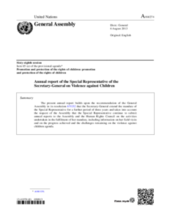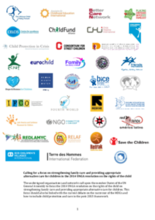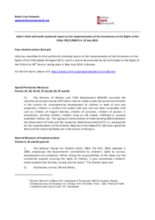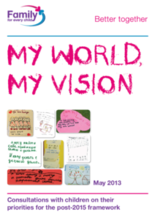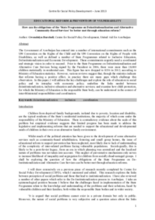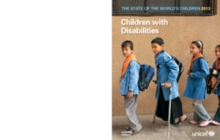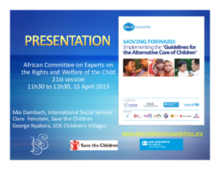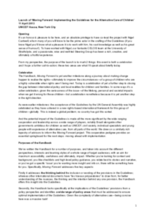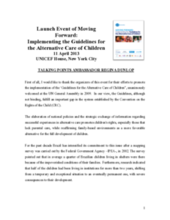Displaying 741 - 750 of 1028
In her annual report to the UN General Assembly, the Special Representative of the Secretary-General highlights the results of an expert consultation on violence in early childhood. The consultation highlighted the urgency of supporting families and caregivers in their child-rearing responsibilities and securing a responsive national child protection system to strengthen families’ capacity to raise young children in safe environments and prevent child abandonment and placement in residential care.
A coalition of over 40 international, regional and national NGOs and networks have issued a joint call to member States of the United Nations General Assembly (UN GA) to focus the 2014 Resolution on the Rights of the Child on strengthening family care and providing appropriate alternative care for children.
India submitted its third and fourth combined report on the implementation of the Convention on the Rights of the Child.
This paper provides details of research into the gatekeeping system in Bulgaria for children under three and examples from recent Bulgarian and international practice. It suggests that gatekeeping could benefit from a social development orientation including activities to combat poverty and promote social inclusion through supporting community and family strengths.
The Millennium Development Goals will come to an end in 2015 and discussions are currently taking place on what framework will replace them. Children’s participation is crucial to these discussions. Between July 2012 and March 2013, members of Family for Every Child consulted with children living in seven different countries. This report summarizes the main findings that emerged from these consultations.
This paper presents an examination of the linkages between education and the deinstitutionalization of children in Azerbaijan. The paper explores the role of education in social policy and its interplay with economic policy; underlines the links needed between deinstitutionalization, inclusive education and alternative services; and examines how child protection can be understood in the context of inter-Ministerial responsibilities and coordination.
In its 2013 State of the World’s Children Report, UNICEF has chosen to highlight the particular issues, needs, and circumstances of children with disabilities worldwide. The report includes a description of the common issues that children with disabilities face, models for inclusive policy and practice, and an agenda for action moving forward.
Representatives from International Social Service, Save the Children, and SOS Children’s Villages met with the African Committee on Experts on the Rights and Welfare of the Child during its 21st session on 15 April, 2013 to present on the international Guidelines for the Alternative Care of Children (UNGA resolution A/RES/64/142) and its new implementation Handbook “Moving Forward.”
Statement by Ms. Jennifer Davidson, CELCIS & co-author of the Handbook on the occasion of the launch of the handbook ‘Moving Forward: Implementing the ‘Guidelines for the Alternative Care of Children’ at UNICEF House in New York on the 11th April 2013.
Statement by Ms. Regina Maria Cordeiro Deputy Permanent Representative of Brazil to the United Nations on the occasion of the launch of the handbook ‘Moving Forward: Implementing the ‘Guidelines for the Alternative Care of Children’ at UNICEF House in New York on the 11th April 2013

